Donald Trump Publicly Insults Yet Another Black Female Reporter, What He Told Her Left Everyone In Shock
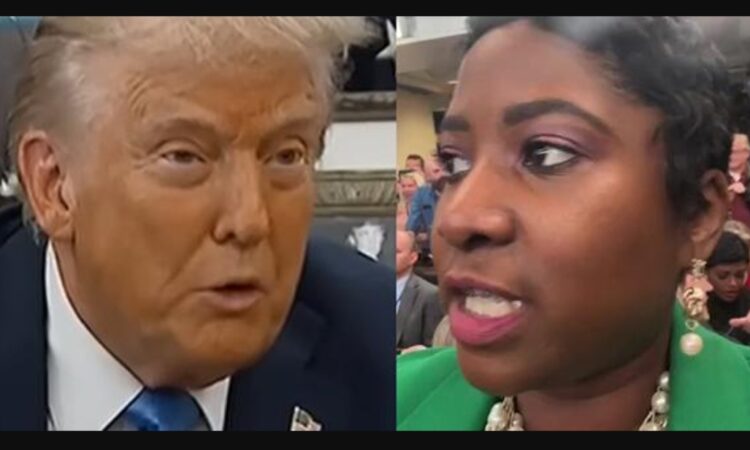
At a press conference inside the White House last Friday, President Trump got into a very tense exchange with Ebony McMorris, a journalist who works for American Urban Radio Networks. McMorris is one of the very few Black women covering the White House on a daily basis, and her role is an important one because she brings questions and concerns from communities that often feel left out of national conversations.
During the press conference, she tried to ask Trump about his controversial plan to send National Guard troops into Memphis, a city that has been struggling with crime and public safety concerns. Before she could fully get her question out, Trump quickly cut her off. He told her to “be quiet” and then called her “really obnoxious,” a comment that immediately stood out because of how dismissive and personal it was.
McMorris did not allow herself to be silenced. She pushed back by firmly saying she was not being obnoxious, but instead simply doing her job as a reporter. She reminded the president that many people wanted answers about what his administration planned to do in Memphis, and she was there to make sure those questions were asked directly.
As she spoke, Trump became visibly irritated and continued to talk over her. The back-and-forth turned into a scene of overlapping voices, but Trump ultimately refused to engage with her question. He told her he would only answer when he decided to call on her, then shifted his attention to another journalist, leaving McMorris’s question unresolved.
The incident quickly drew national attention. It was recorded on video and circulated widely, sparking strong reactions from journalists, media organizations, and advocates for press freedom. Many were disturbed by the way Trump dismissed McMorris, not just because he avoided answering a difficult question, but because of the way he singled her out with a personal insult.
The Washington Association of Black Journalists, a professional group McMorris is part of, immediately spoke up in her defense. They emphasized that what she did—asking tough and sometimes uncomfortable questions—is exactly what a journalist is supposed to do in a democracy. They rejected the idea that asking those questions could be called “obnoxious,” and they reminded the public that journalists must have the freedom to hold leaders accountable without being mocked, insulted, or silenced.
On social media, McMorris received an outpouring of support. Many praised her for standing firm in the face of hostility, refusing to be intimidated by the president’s dismissive remarks. Xina Eiland, a strong advocate for Black journalists and media professionals, wrote a powerful piece arguing that what happened was part of a larger pattern in which Black women reporters are often treated unfairly when they ask direct or challenging questions.
Eiland explained that McMorris was not doing anything unusual—reporters in the White House press pool often shout questions or press harder to get real answers from the president. The only difference in this situation, she pointed out, was that McMorris did not accept being silenced, and that made her a target for Trump’s insult. Eiland also tied this to the constitutional right to freedom of the press, reminding people that journalists must be free to question those in power without fear of being punished for it.
Ebony McMorris herself has a long history of taking on serious and important stories. She has built her career on amplifying the voices of communities that are often overlooked or ignored. She was a featured speaker at the 2025 ESSENCE Festival of Culture, showing her growing influence and recognition as a respected journalist.
Her encounter with Trump highlighted how difficult it can be for reporters to do their jobs when they are met with hostility from public officials. It also underscored why her presence in the White House press room is so valuable—she represents perspectives and questions that might not otherwise be raised.
This was not an isolated incident. Trump has clashed with reporters many times, but he has been especially harsh when dealing with Black female journalists. Earlier this month, for example, NBC correspondent Yamiche Alcindor asked him about his plans to send the National Guard to Chicago.
Instead of answering, Trump insulted her directly by saying, “That’s why you’re second rate.” Incidents like these raise serious questions about how Trump handles accountability and whether his treatment of journalists, particularly women of color, reflects deeper issues of race and gender bias.
The confrontation between Trump and McMorris was more than just a short argument at a press conference. It was a moment that drew attention to the ongoing struggle between political power and a free press.
It highlighted the critical role journalists play in asking questions that matter to the public, even when those in power don’t want to answer. And it showed the importance of reporters like Ebony McMorris, who refuse to be silenced and continue pressing for accountability, even when it comes at the cost of being insulted in front of the entire nation.

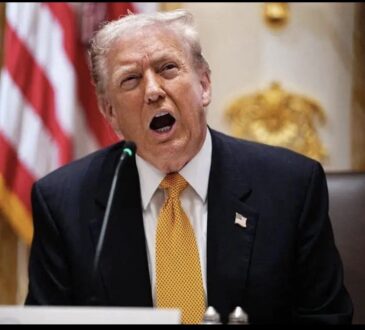
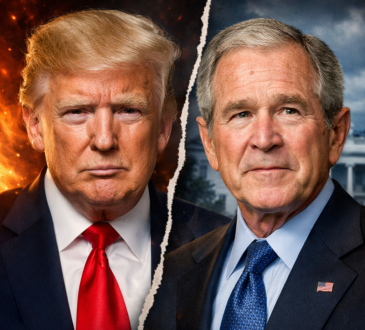
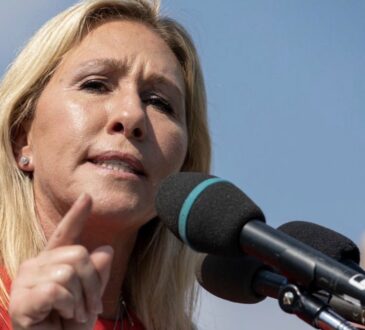
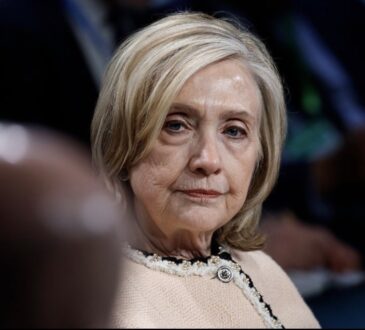
Awesome!
This Sister needs to stop being nice and show FELON TRUMP that you are a BLACK PROUD WOMAN and the next time he insults you say okay 31 !!!
From one old man to whomever it applies; The amount of disrespect that so called reporters project at public officials is unseemly and disgrasefull. Every press conference sounds like a bunch of children trying to get teachers attention in grades school. Have some personal respect and you will receive it in like kind